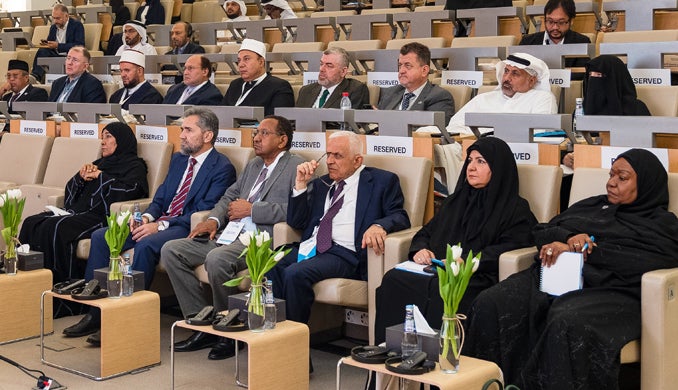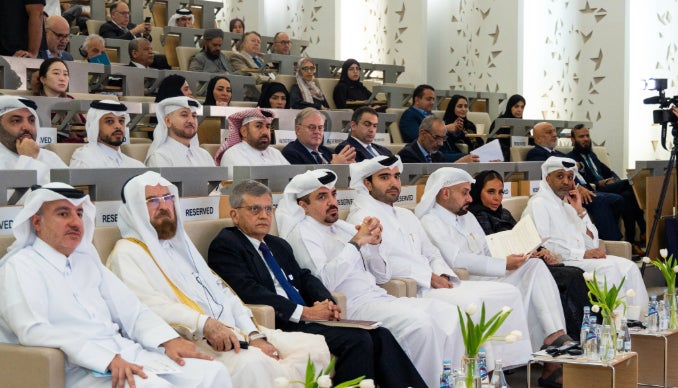Discussions explore Qatar’s potential as Islamic wealth management hub
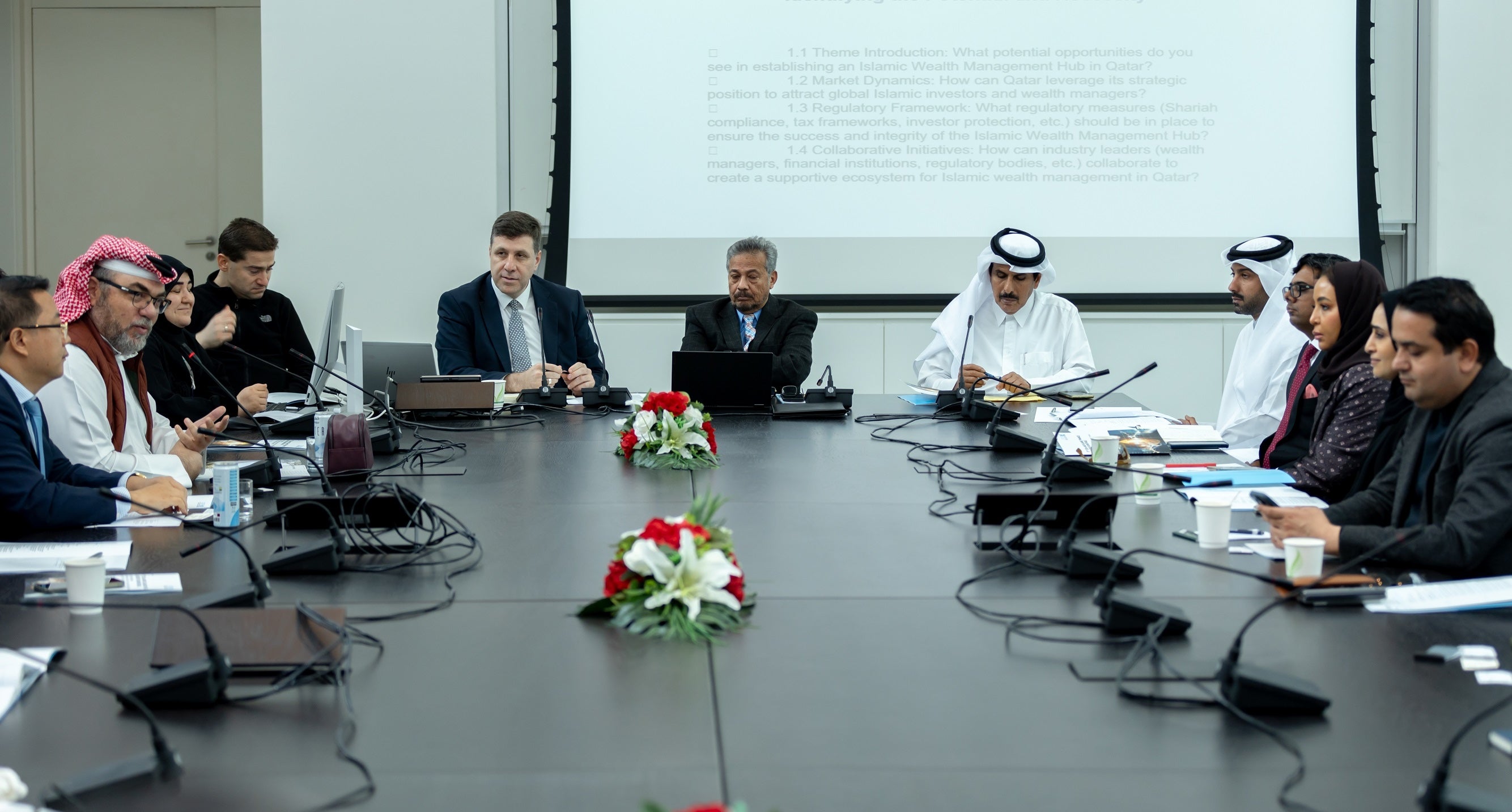
The Center for Islamic Economics and Finance (CIEF) at Hamad Bin Khalifa University’s (HBKU) College of Islamic Studies (CIS) organized the eighth CEOs and Islamic Finance Leaders Roundtable, an annual event aimed at facilitating communication between the finance industry and academics. The purpose of the event is to review and discuss strategies, as well as to better appreciate and understand each other's roles in advancing the field of Islamic finance. This year’s roundtable topic discussed the future of Qatar’s Islamic wealth management landscape.
Dr. Recep Şentürk, Dean, CIS, welcomed participants to the event, held under the theme “Beyond Borders: Shaping Qatar's Islamic Wealth Management Ecosystem for Global Impact.” He highlighted the significant transformation the global Islamic finance landscape is undergoing, and the role that Islamic wealth management is poised to play in this evolution. Qatar, with its robust Islamic finance ecosystem, strategic location, and commitment to ethical and sustainable investing, possesses immense potential to emerge as a global leader in this space.
Yousuf Mohamed Al-Jaida, CEO, Qatar Financial Centre (QFC) Authority, gave the keynote address, emphasizing the importance of gathering leadership figures from across the country’s Islamic finance sector for this annual knowledge exchange. The participants hailed from leading financial institutions in Qatar, including the Qatar Financial Centre Authority, Qatar Central Bank, Qatar Credit Bureau, Qatar Chamber of Commerce, Al Rayan Bank Investment, Lesha Bank LLC Public, Industrial & Commercial Bank of China, K L Gates LLP, Hayat Business Consultant LLC, PwC (PricewaterhouseCoopers), Morison Menon CA and Partners LLC, as well as Qatar University’s College of Business and faculty and staff from HBKU’s College of Islamic Studies and College of Public Policy.
Moderated by Dr. Ahmet Faruk Aysan, Associate Dean for Research, CIS, the event saw leaders from the Islamic finance sector hold discussions on the potential of Qatar as a global leader in Islamic wealth management and explore the theoretical and practical considerations for doing so. Throughout the course of the roundtable, participants exchanged opinions on how the regulatory framework surrounding the sector would look like, infrastructure necessary to support the hub, and how to attract and develop the talent required to develop and grow Islamic wealth management in Qatar for the foreseeable future.
The roundtable concluded with conversations on how to create a tangible roadmap toward positioning Qatar as a leader in this growing field, with attendees collaborating to outline potential initiatives, mitigate risks, and steps they can take to ensure the implementation of strategies discussed.
Dr. Syed Nazim Ali, CIEF Director, stated that this annual roundtable, initiated in 2015, aims to understand challenges the industry faces in serving the community and to explore the role academia can play towards the vision at both the industry-level as well as at the institution-level. This dialogue aims to foster enhanced synergies and cooperation between these two vital stakeholders. In his comments, he emphasized the promising potential of Islamic wealth management as an emerging sector; and Qatar’s pioneering role in Islamic finance and CIS’ commitment to cultivating the next generation of experts for building a sustainable Islamic wealth management hub in the country.
Yousuf Mohamed Al-Jaida, Chief Executive Officer, QFC, stressed the significance of the roundtable and the country's strong potential to become an Islamic finance hub, stating: "The annual meeting serves as a crucial platform for CEOs and Islamic finance leaders to advocate for the adaptation, responsible management, and development of Islamic financial instruments. We recognize the promising potential of these products and will harness them to foster a socially responsible financial ecosystem and sustainable future. Qatar already has a considerable competitive advantage as an Islamic finance hub due to its strategic location, growing demand for Islamic financial products and services, and supportive legal and regulatory infrastructure. By 2030, we envision Qatar as a global Islamic finance hub, and we are committed to realizing this vision through the implementation of the QFC strategy aligned with the Third Qatar National Development Strategy and the Qatar Central Bank's Third Financial Sector Strategy.
In line with HBKU and the college’s innate dedication to dialogue, CIS overcomes borders, to facilitate expertise and build capacity in Qatar and beyond. The College’s research output is rooted in carefully designed research clusters that together promote interdisciplinary research agendas and inject new contributions to the world of global Islamic scholarship.
Related News
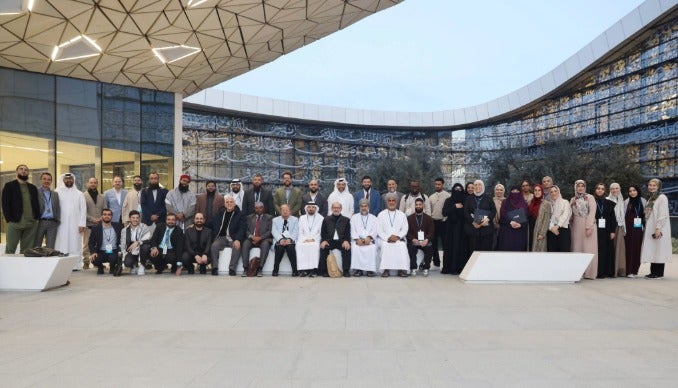
Hamad Bin Khalifa University Symposium Positions Islamic Psychology As Essential Part of Mental Health Systems
Qur’anic Botanic Garden and Herfah Program Revive Traditional Craft with New Dye Plants Garden
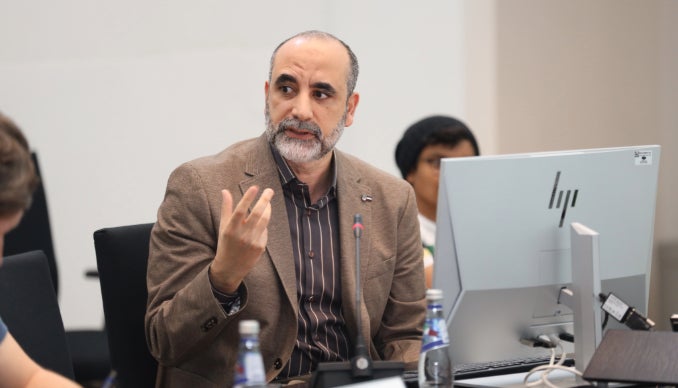
Hamad Bin Khalifa University’s International Islamic Bioethics Association Holds Inaugural Meeting
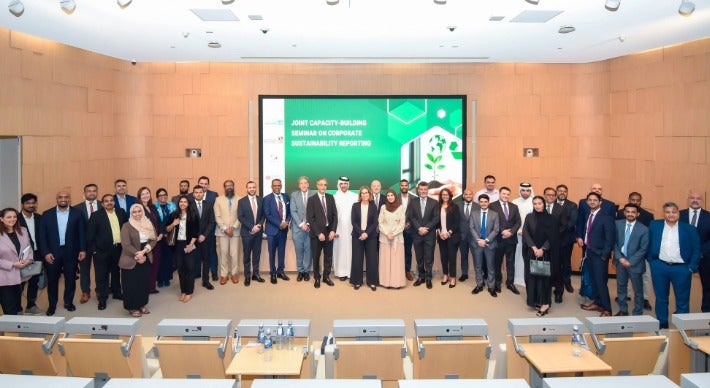
HBKU’s CIS Hosts Second High-Level Seminar on Corporate Sustainability Reporting
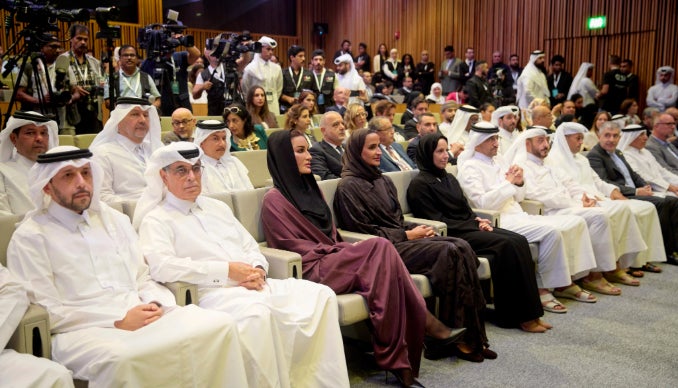
Her Highness Sheikha Moza bint Nasser Attends Hamad Bin Khalifa University’s Conference on AI Ethics
